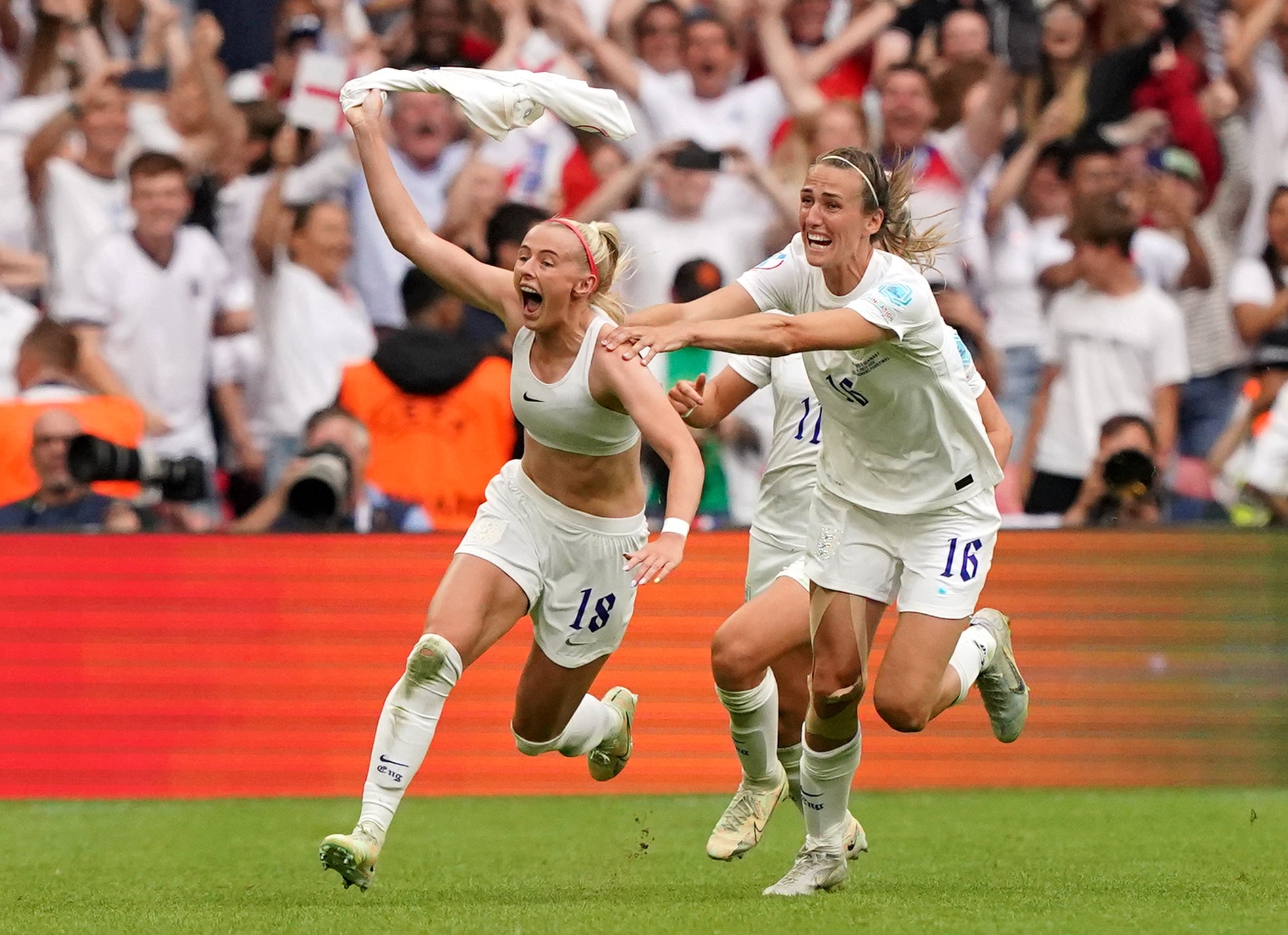England’s Euro 2022 win is not an ending – it’s just the start
Winning a major tournament was the easy part compared to the slow process of inspiring wider change, but this is a sport that knows where it has been and is focused on where it is going
The morning after the historic night before, it is worth checking in on the Football Association’s eight-point Women’s & Girls’ Football Strategy, 2020-2024: Inspiring Positive Change, with particular attention paid to point six. “England: win an international tournament,” it reads. Well, there you go. Job done. A whole two years ahead of schedule as well.
Except it isn’t job done, actually. Far from it. And you could tell that much at Wembley, too.
Normally the post-match reaction to a victory of this breadth and scale would mostly focus on the journey that led to it. Players usually speak about the sacrifices made, the barriers broken down, the challenges overcome. There was still plenty of that type of talk because women’s football has always had to make sacrifices, break down barriers and, ultimately, overcome.
Yet as well as reflections on the journey up to this point, there was time spent considering where these players, this team and the sport that they champion is going.
That’s why Leah Williamson, in her first television interview since becoming only the second England captain after Bobby Moore to lift a major trophy, implored the record 87,192-strong crowd and millions watching on television to go and attend the Women’s Super League. It’s why Georgia Stanway spoke about wanting people to jump on the bandwagon, it being never too late to join.
It’s why throughout this tournament, the England players have not shied away from discussing their influence off-the-pitch. Even their single-minded head coach Sarina Wiegman has invited talk of inspiring a nation. They have never worried that this might affect their performance on it. Instead, they know it is absolutely necessary for their sport. That actually, the two go hand-in-hand.
A decade on from the London Olympics, “legacy” is a deeply suspicious word in the context of staging major sporting events. But surely if any tournament can make an indelible, permanent impact on its host country, it should be this one. That is certainly the belief of the organisers who, after England’s success on home soil, should be confident of meeting even some of the more ambitious targets that they have set.
One of the stated ambitions, for example, is for 75 per cent of schools to provide equal access to girls to play football in PE lessons by 2024. The figure currently sits at just 63 per cent overall, falling to less than half in secondary schools alone. It is a number that should rise if the momentum of this summer can be sustained. Ideally, why should it not be as close to 100 per cent as possible?
The same could be said of girls’ participation in grassroots football, where the FA is hoping for 75 per cent of clubs to offer at least one girls’ team – up from just 30 per cent – and for ]at least 1,000 clubs to have a complete accredited pathway for girls football. This and the increased school participation would push 120,000 more girls into playing regularly, overseen by a rising number of female coaches and referees.

None of that should be necessary but it is and, hopefully, can begin to be addressed. Much of the benefit will be felt in the nine host cities that staged this tournament, from up in Leigh down to Southampton. Yet even in that fact, there is a tale about how far there still is to travel.
Mark Bullingham, the FA’s chief executive, revealed before the start of Euro 2022 that several of the host cities and clubs whose stadiums were being used had to be persuaded to take part. Many others rejected that opportunity outright, failing to see the benefit. As Alex Scott powerfully pointed out during BBC Sport’s post-match coverage, you hope they were watching Sunday’s scenes at Wembley.
Williamson’s appeal for the support that England have enjoyed this summer to carry over into the domestic game during the winter was very much needed too. For all the valid talk of the growth of the women’s game in recent years, attendances in the WSL still hover around the low thousands, with crowds of the size found at the top of men’s non-league football, only really spiking when fixtures are played in men’s stadiums.
The extraordinary fact that the three highest attendances in European football in 2022 have all been women’s games proves it does not inherently have to be this way. It is a question of exposure, accessibility and opportunity.
And further still, women’s football must work to represent all women. Nikita Parris was introduced as a substitute in the last of the 120 minutes at Wembley. She was the only non-white England player to get on the pitch. This lack of diversity and narrowing of pathways is not a new problem and, as just about anybody in the game will insist, it is something in need of urgent address.
Tick point six off, then, but in many ways, winning a major tournament was the easy part compared to the slow process of inspiring wider change, within and outside of the game. There is a lot of work to do, but this is a sport that knows where it has been and is focused on where it is going.
Join our commenting forum
Join thought-provoking conversations, follow other Independent readers and see their replies
Comments
Bookmark popover
Removed from bookmarks